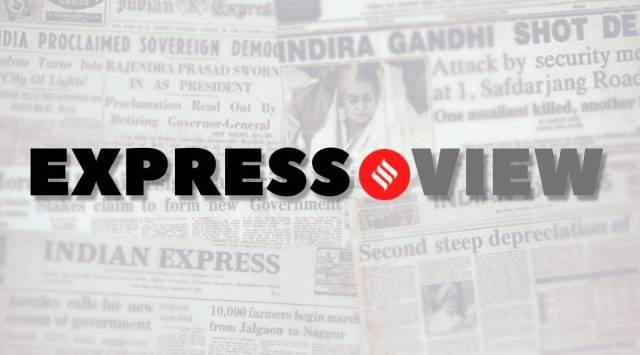Opinion Focus on female voter is reassuring. But sensitive politics is needed
There is a need to draw upon lessons learnt from other areas of social justice to ensure that the idea of representation and empowerment leads to a shared consensus, and does not become a tug of war that pulls women down rather than setting them free
 The discussion on women's rights in India at every level requires careful attention, and safeguards need to be built in against a reductionist politics of labelling. (Express File Photo)
The discussion on women's rights in India at every level requires careful attention, and safeguards need to be built in against a reductionist politics of labelling. (Express File Photo) With Assembly elections slated to take place later this year in Madhya Pradesh, the Shivraj Singh Chouhan government’s decision to reserve 35 per cent of all government jobs for women, (with the exception of the forest department), is a welcome move. Over the last decade, with their increasing participation in the poll process, on occasion even overtaking that of men, women have emerged as a crucial voting bloc that parties now compete with each other to address.
The Madhya Pradesh government’s decision is only one in a long list of many such initiatives by political parties across states. From free or subsidised transport and healthcare to housing schemes for women, provision of cheap cooking gas cylinders and increase in maternity benefits, these schemes show that the parties are finally taking cognisance of the entrenched faultlines that hold back one half of the electorate.
This renewed consciousness of the needs of the female voter is reassuring in a country where the discourse has invariably been male-centric and one-note. From the imagination of the Indian woman variously as “bachche banane ki machine (the bearer of children)” or “parkati mahilayein (emancipated women with short hair)” to the passing of the Constitution (One Hundred and Twenty-Eighth Amendment) Bill, 2023, making room for reservation of one-third of the total number of seats in Lok Sabha and state legislative assemblies for women — it has been a long and arduous journey.
The recognition of the necessity of top-down measures to reinforce bottom-up forces is crucial to the principle and idea of a level playing field and an eco-system that offers equal opportunities to all. In an aspirational economy, access to education, infrastructure, amenities and technology should be integral planks of affirmative policies. Care must be taken, however, to ensure that these policies open doors, instead of solidifying boundaries. Women must not be forced into women-only compartments or zenana dabbas. What is also required is a language of nuance mature enough to acknowledge that the framing of equal rights as protective benevolence towards “ma-behen-beti” is a disservice, marred by its tone of largesse.
The discussion on women’s rights in India at every level requires careful attention, and safeguards need to be built in against a reductionist politics of labelling. There is a need to draw upon lessons learnt from other areas of social justice to ensure that the idea of representation and empowerment leads to a shared consensus, and does not become a tug of war that pulls women down rather than setting them free.






